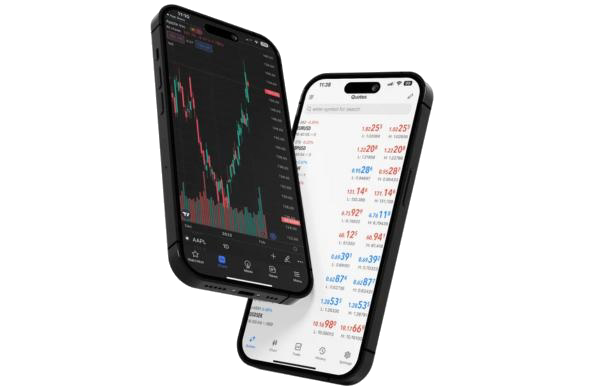Tech stocks explained: everything you need to know

There's no denying that technology is now part of our daily lives. From e-commerce to AI, the technology sector has seen incredible growth in the last decade, leading to a surge in investments in tech companies. However, with new trends emerging all the time, it can be challenging and overwhelming to know where to start when investing in tech stocks especially if you’re a newbie.
What are tech stocks?
Tech stocks, also known as technology stocks, are shares of companies that operate in the technology industry. These companies typically focus on developing and providing technological products, services, or solutions. Examples of such stocks include companies in sectors such as artificial intelligence (AI), software development, hardware manufacturing, telecommunications, e-commerce, and social media.
Tech stocks are often considered high-growth investments due to the rapid pace of innovation in the technology sector. Investors are attracted to them for their potential for capital appreciation and the chance to participate in technological advancements shaping various industries. However, it is important to note that like any investment, tech stocks carry risks and require careful analysis and evaluation before making investment decisions.
How to get started with tech stocks
1. Learn the basics
Before you start investing in tech stocks or any other stocks, you need to understand some basic concepts. These include:
- Stock exchanges: A stock exchange is a marketplace where stocks are bought and sold. Some of the major stock exchanges are NYSE in the US, LSE in the UK, and TSE in Japan.
- Shares: A share is a unit of ownership in a company. When you own shares, you have a stake in the company's profits and losses. Shares can be publicly traded, meaning they are available for anyone to buy and sell on a stock exchange.
- Dividends: Dividend are the portion of a company's profits that are distributed to shareholders. Not all companies offer dividends, and even those that do may have varying payout ratios.
- Market capitalization: Market capitalization is the total value of a company's shares. It is calculated by multiplying the number of outstanding shares by the current market price.
2. Do your research
Once you've grasped the basics, it's time to start researching specific companies and their stocks. In the tech sector, there are many companies with compelling growth potential, but not all of them are equally attractive or reliable. Some factors to consider when researching tech stocks include:
- Financial performance: Look at the company's revenue growth, earnings, and profit margins over the past few years. Assess the company's balance sheet and debt levels.
- Market position: How does the company compare to its competitors? What is its market share, and how is it likely to develop in the future?
- Products and services: What are the company's key products or services? Are they in high demand? Are they unique or easily replicable?
- Management and leadership: Who runs the company, and what is their track record? Are they innovative, transparent, and shareholder-friendly?
3. Consider CFD trading
If you're hesitant to invest directly in stocks, you can consider using CFDs as an alternative. CFDs are derivative instruments that allow you to speculate on the price movements of stocks, without actually buying or owning them. With CFDs, you enter into a contract with a broker to exchange the difference in the price of a stock between the time of opening and closing the contract. Some advantages of CFDs are:
- Access to a wider range of markets: With CFDs, you can trade global stocks, indices, Forex, cryptos and commodities from all over the world, without needing to open separate accounts or pay high fees.
- Leverage and margin: CFDs offer leverage, meaning you can trade larger positions with a smaller stake. For example, if your broker offers a leverage of 1:10, you only need to deposit 10% of the total trade value, and the broker will lend you the rest.
- Short selling: With CFDs, you can also gain from the decline of a stock's price, by going short or "selling". This allows you to hedge against losses or profit from a bearish market.
Use TradingMoon for CFD trading
If you're getting into CFDs, the first thing you want to do is find a reliable and user-friendly platform that will make your trading experience smooth and less costly in terms of fees. TradingMoon is a regulated and 2023 award-winning CFD broker that offers a proprietary platform Moon Trader as well as cTrader, MetaTrader4 and copy trading.
- A range of markets: TradingMoon lets you trade CFDs on over 1000 instruments, from stocks to Forex and cryptos.
- Low fees and commission: We offer competitive spreads from as low as 0.1 pips and commission rates with no hidden charges.
- Rapid and reliable execution: Ensuring that we fulfil orders at the optimal time and price is a commitment we prioritise. Our trading platforms have been scaled to accommodate hundreds of thousands of transactions so you can trade with confidence, knowing that your orders have the best chance of being executed accurately and efficiently.
Capitalise on volatility in share markets
Take a position on moving share prices. Never miss an opportunity.

Past performance does not guarantee or predict future performance. This article is offered for general information and does not constitute investment advice. Please be informed that currently, TradingMoon is only offering CFDs.








